This manual covers the full range of communicable diseases in the African region: skin infections, malaria and other vector-borne diseases, infections transmitted via contaminated food and water, tuberculosis and leprosy, diseases transmitted through animals, haemorrhagic fevers and severe acute respiratory illnesses. In this new edition HIV/AIDS has been covered as a chapter on its own. The authors have also included a new chapter titled Emerging and Re-emerging infections in which diseases such as Rift valley fever, Avian flu and Ebola have been discussed. The target for this book include students in medical training colleges, community health workers, nurses, clinical officers, public health officers, teachers of health workers and indeed all who are interested in and who want to learn about communicable diseases in Africa.
COMMUNICABLE DISEASES 4th edition
KSh 3,000.00
This manual covers the full range of communicable diseases in the African region: skin infections, malaria and other vector-borne diseases, infections transmitted via contaminated food and water, tuberculosis and leprosy, diseases transmitted through animals, haemorrhagic fevers and severe acute respiratory illnesses. In this new edition HIV/AIDS has been covered as a chapter on its own. The authors have also included a new chapter titled Emerging and Re-emerging infections in which diseases such as Rift valley fever, Avian flu and Ebola have been discussed. The target for this book include students in medical training colleges, community health workers, nurses, clinical officers, public health officers, teachers of health workers and indeed all who are interested in and who want to learn about communicable diseases in Africa.
Related products
-
Study Guide for Foundations of Nursing, 9th Edition
KSh 7,280.00Reinforce your understanding of LPN/LVN nursing skills — and prepare for the NCLEX-PN® exam! Corresponding to the chapters in Foundations of Nursing, 9th Edition, this study guide provides a variety of exercises to help you review, practice, and apply nursing concepts and principles. Review questions make it easier to achieve the chapter objectives from the textbook, and critical thinking activities help you develop clinical judgment skills. Now with Next Generation NCLEX® (NGN)-style case studies and questions, this guide provides you with an effective study tool for the NGN exam.
-
Medical Terminology: A Short Course, 9th Edition
KSh 11,100.00Build a working medical vocabulary quickly with Chabner’s Medical Terminology: A Short Course, 9th Edition! Omitting time-consuming, nonessential information, this text helps you master the basics of medical vocabulary — including the most frequently encountered suffixes, prefixes, and word roots. A text/workbook format lets you practice and interact with medical terminology on almost every page through exercises, labeling, and pronunciations. Case studies and real-world vignettes demonstrate how medical terms are used in practice. With all this plus medical animations, word games, and flash cards on the Evolve website, you’ll be amazed at how easily medical terminology becomes part of your vocabulary.
-
Modern Blood Banking & Transfusion Practices Seventh Edition
KSh 12,460.00Join the generations of students who have embarked on successful careers with a firm foundation in the theory and practice of blood banking and transfusion practices. Denise Harmening’s classic text teaches you not only how to perform must-know tests and tasks, but to understand the scientific principles behind them.
You’ll begin with a review of the basic concepts of red blood cell and platelet preservation, genetics, immunology, and molecular biology. Then you’ll move to the hows and whys of clinical practice. And, you’ll be prepared for new advances in the field.
-
Ross and Wilson;Anatomy and Physiology in Health and Illness. International Edition, 14th Edition
KSh 8,000.00Now in its fourteenth edition, this best-selling textbook has been honed over many years to provide a clear, straightforward introduction to the human body for students of nursing, allied health or biomedical and paramedical science.
The book covers the core essentials of anatomy and physiology, including basic pathology and pathophysiology of important diseases and disorders. This new edition presents additional illustrations to enhance understanding of key concepts, including pathophysiology and diagnostics. Included for the first time is an introduction to surface anatomy, while other updating reflects current scientific knowledge and developments, including coronavirus. Enhanced learning features and an extensive online resource help you grasp all the important areas.
Like millions of readers before you, you will treasure Ross & Wilson as a go-to resource that you will refer to time and again to support this critical aspect of your healthcare education.
Key Features-
- Clear and easy to read – suitable for students new to the area and anyone whose first language is not English
-
- Hundreds of stunning illustrations and images to make learning easy
-
- Helpful learning features such as Learning Outcomes boxes, colour coding and orientation icons to facilitate navigation
-
- Definitions of common prefixes, suffixes and roots, examples, glossary and an appendix of normal biological values
-
- Self-assessment activities in each chapter, including ‘spot check’ questions for each section and case studies with answers to develop understanding of key principles
- Accompanying website with animations, videos, audio-glossary and other self-assessment material
Evolve Study Resources
Online content offered with Ross & Wilson Anatomy and Physiology in Health and Illness 14th edition includes:
-
- New for this edition – a set of expert-narrated 3D videos summarizing key topics in the book, powered by Complete Anatomy: the world’s most advanced 3D anatomy platform
-
- Over 120 animations clarifying underlying principles and make learning fun
-
- More than 1700 audio glossary entries
-
- Body Spectrum © online colouring and self-test software
- Self-assessment questions to help students test their knowledge
Author InformationBy Anne Waugh, MSc CertEd SRN RNT FHEA, School of Acute and Continuing care Nursing, Napier University, Edinburgh, UK and Allison Grant, BSc PhD RGN, Department of Biological and Biomedical Sciences, Glasgow Caledonian University, Glasgow, UK -
-
McRae’s Elective Orthopaedics, 7th Edition
KSh 11,000.00This new must-have text is a companion to McRae’s Orthopaedic Trauma and Emergency Fracture Management, extending this much-loved family of reference guides to cover the entire range of modern orthopaedic trauma and elective practice.
McRae’s Elective Orthopaedics is both an examination manual and a text on orthopaedic pathology. It offers a unique combination of subject matter and instructive illustrations in the tradition original author, Ronald McRae, to convey economically and effectively essential information for examination and management of the orthopaedic patient.
This book is organised into two parts. The first covers the relevant applied clinical sciences, and the second adopts a regional approach to the description of individual diseases and their non-operative or operative management. It is suitable for junior orthopaedic surgical trainees as well as other health professionals who encounter patients with musculoskeletal illnesses.
Key Features-
- Internationally respected textbook that provides in-depth knowledge across a breadth of conditions
-
- More than 140 new illustrations present essential information in a unique ‘picture book’ style
-
- Concise and accessible – perfect for orthopaedic surgical trainees
-
- Practical tips, clinical examination pearls and surgical techniques – ideal for use on the wards
-
- Learning enhanced with anatomical illustrations, diagrams, radiographic imaging and clinical photos, accompanied by descriptions of the background to each condition
-
- Updated to include modern investigation and management
-
-
Pocket book of hospital care for children
KSh 3,640.00This is the second edition of the Pocket book of hospital care for children. It is for use by doctors, nurses and other health workers who are responsible for the care of young children at the first level referral hospitals. The Pocket Book is one of a series of documents and tools that support the Integrated Management of Childhood Illness (IMCI). It is an update of the 2005 edition, and presents up-to-date evidence based clinical guidelines from several recently updated and published WHO guidelines and recommendations. The guidelines are for use in both inpatient and outpatient care in hospitals with basic laboratory facilities and essential medicines. These guidelines focus on the management of the major causes of childhood mortality in most developing countries, such as newborn problems, pneumonia, diarrhoea, malaria, meningitis, septicaemia, measles and related conditions, severe acute malnutrition and paediatric HIV/AIDS. It also covers common procedures, patient monitoring and supportive care on the wards and some common surgical conditions that can be managed in small hospitals.
Details of the evidence on which the Pocket Book is based can be found on the WHO website from the relevant published guidelines provided in the bibliography. This bedside paediatric care guidelines are applicable in most areas of the world and may be adapted to suit country specific circumstances. However, advanced and high care treatment options, such as intensive care or mechanical ventilation, are not described. The Pocket Book is also available in hard copies although the online version will be updated regularly as new evidence emerges.
-
Children with Developmental Disabilities: A Training Guide for Parents, Teachers and Caregivers First Edition
KSh 6,370.00This manual is designed as a guide for parents, teachers and caregivers dealing with children up to the age of six who are afflicted by developmental disabilities. The author provides details of more than 400 non-formal activities along with guidelines on how to use them both at home and in pre-school settings.
The book is divided into three sections:
– the first describes a wide range of impairments, disabilities and handicaps along with information on their manifestations and characteristics. The author also outlines steps to handle negative or problem behaviour during training.
– the next section presents a Comprehensive Activity Checklist for pre-school children. All items have been empirically tested and are located on a scale of increasing difficulty.
– the third section comprises two chapters. The first is a `do-it-yourself` activity assistance guide which will be of immense use to trainers, caregivers, teachers and parents. In the last chapter, Dr Venkatesan discusses contemporary problems and issues related to the rights and privileges of persons with developmental disabilities -
Mims’ Medical Microbiology and Immunology, International Edition, 7th Edition
KSh 5,642.00MIMS’ Medical Microbiology and Immunology is loved internationally for its thorough yet easy-to-follow coverage of microbiology, infectious diseases, and immunology as a dynamic interplay between microbes and host. Covering the fundamentals of these closely linked disciplines, MIMS’ takes a systems approach to elaborate on epidemiology, clinical presentation, pathogenesis, and diagnostic approaches, as well as treatment and infection control considerations, supplemented by case-based examples. Complex scientific and clinical concepts are explained clearly and simply with the help of illustrations and a range of accompanying online content. Students will come away with a deep understanding of topics and processes, and will return to this book for reference time and again.Key Features- Clear writing and easy-to-understand explanations – perfect for students learning to grasp the fundamentals of both microbiology and immunology
- User-friendly format with colour coding, key concept boxes, and dynamic illustrations for easy navigation
- Organised by body system – goes beyond the ‘bug parade’ to help you understand clinical context
Author InformationBy Richard Goering, BA MSc PhD, Professor and Chair, Department of Medical Microbiology and Immunology, Creighton University School of Medicine, Omaha, Nebraska.; Hazel M. Dockrell, BA (Mod) PhD, Professor of Immunology, Faculty of Infectious and Tropical Diseases, London School of Hygiene and Tropical Medicine, London, UK; Mark Zuckerman, BSc(Hons), MBBS, MRCP, MSc, FRCPath, Consultant Virologist and Honorary Senior Lecturer, South London Specialist Virology Centre, King’s College Hospital NHS Foundation Trust, King’s College London School of Medicine, London, UK; Peter L. Chiodini, BSc, MBBS, PhD, FRCP, FRCPath, FFTM, RCPS(Glas), Consultant Parasitologist, Hospital for Tropical Diseases, London and Honorary Professor, London School of Hygiene and Tropical Medicine, London, UK

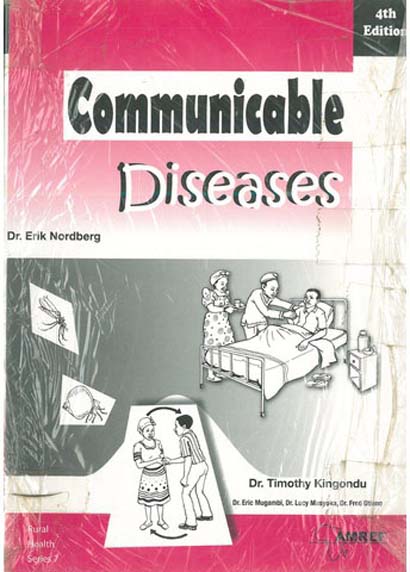
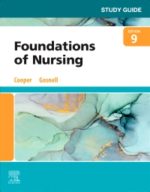
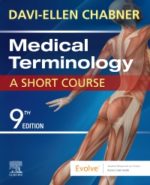
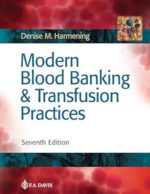
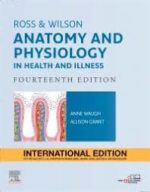
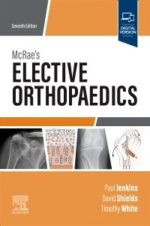
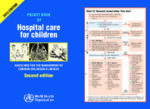
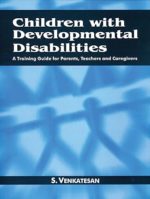
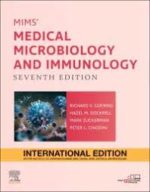
Be the first to review “COMMUNICABLE DISEASES 4th edition”